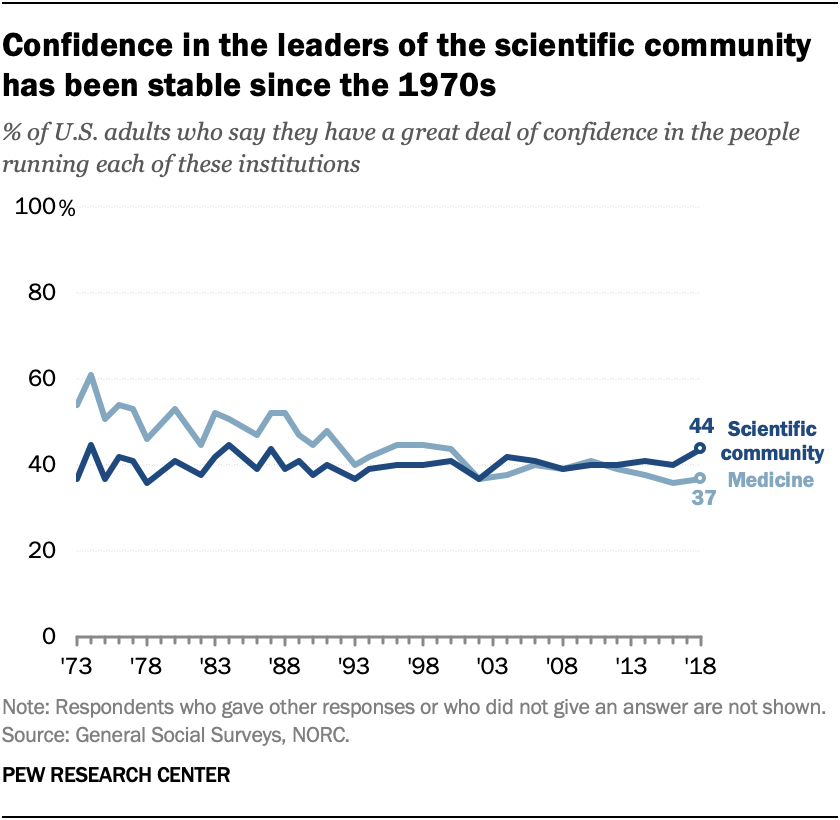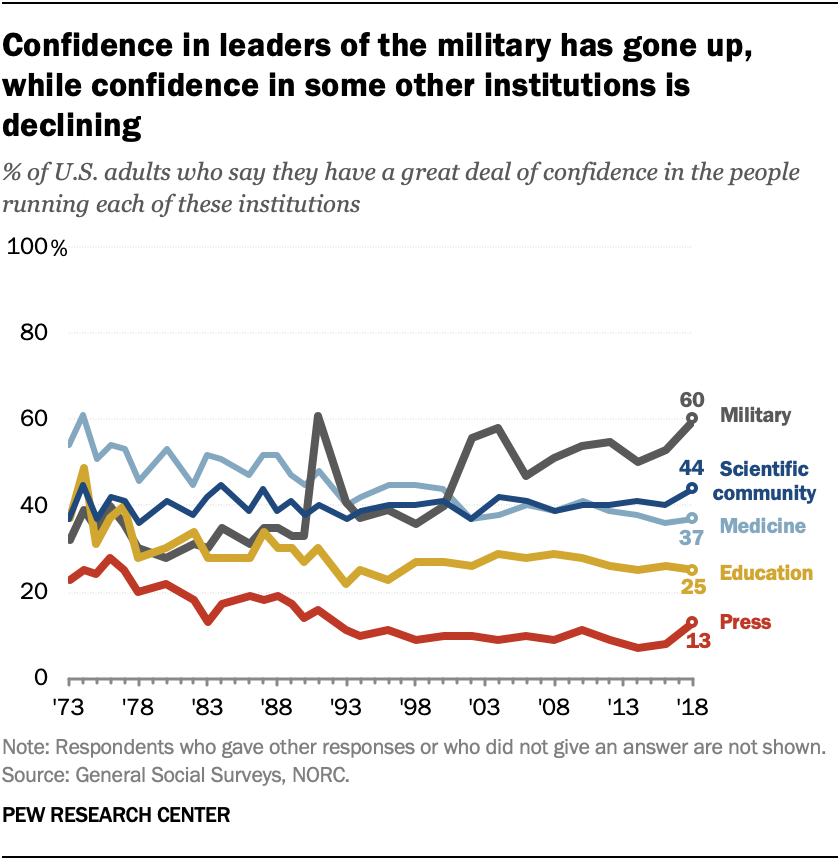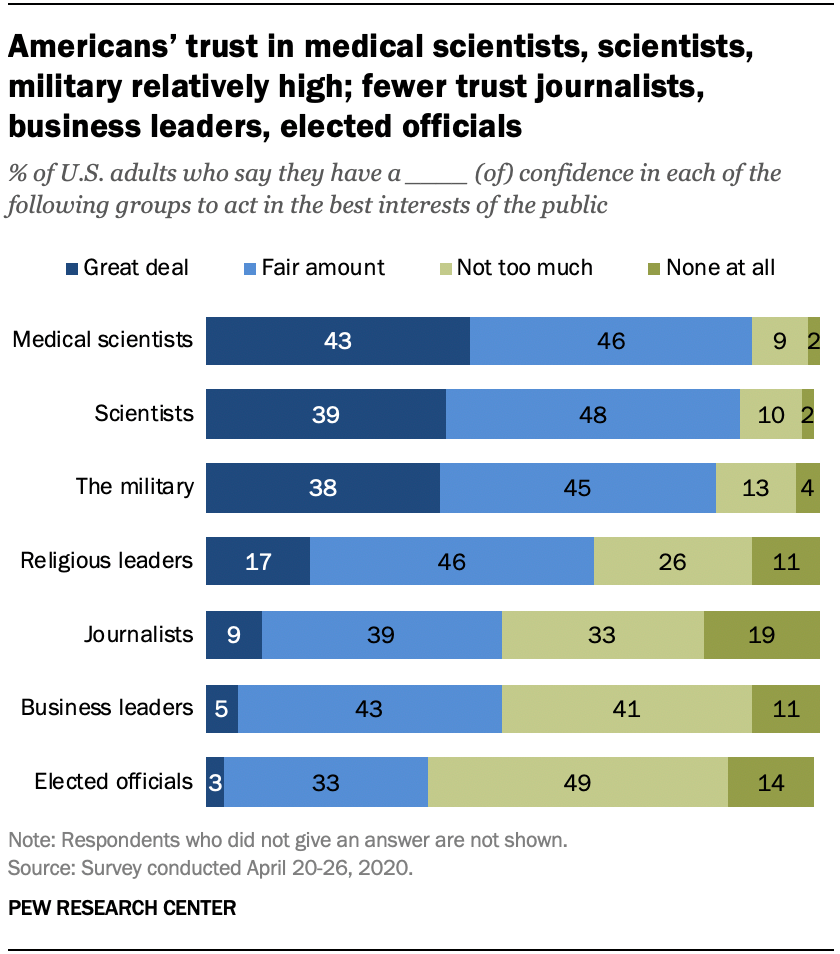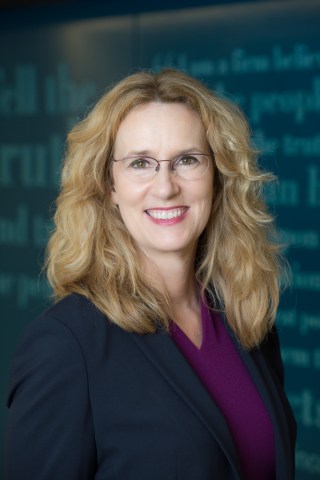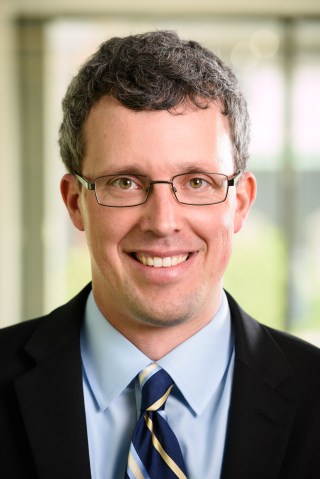Recent surveys by Pew Research Center and other organizations have shown public divides over science-related issues such as climate change and food science. But public confidence in the scientific community as a whole has remained stable for decades, according to data collected by NORC, an independent research organization at the University of Chicago.
In the group’s 2018 General Social Survey, the most recent available, 44% of Americans overall have a great deal of confidence in the scientific community, while 47% have only some confidence and 7% have hardly any. This was roughly the same share as in 2016, when 40% said they had a great deal of confidence in scientific leaders. (The 4-percentage-point uptick does not reach statistical significance.)
Public confidence in the scientific community stands out as among the most stable of about a dozen institutions rated in the GSS since the mid-1970s. Confidence in medicine has been somewhat less stable, however. It declined in the early 1990s and has ticked downward again in more recent years, from 41% in 2010 to 36% in 2016 and 37% in NORC’s most recent survey.
This analysis of Americans’ confidence in scientists is based on the General Social Survey (GSS), a face-to-face survey conducted by NORC, an independent research organization at the University of Chicago. The GSS randomly selects households in the United States to participate. The most recent survey took place in 2018.
This post also draws from a Pew Research Center survey of 10,139 U.S. adults conducted from April 20 to April 26, 2020. Everyone who took part is a member of Pew Research Center’s American Trends Panel (ATP), an online survey panel that is recruited through national, random sampling of residential addresses. This way nearly all U.S. adults have a chance of selection. The survey is weighted to be representative of the U.S. adult population by gender, race, ethnicity, partisan affiliation, education and other categories. Read more about the ATP’s methodology.
Public confidence in the science community and in medicine is higher than in many other institutions. Confidence is highest for leaders of the military, with 60% expressing a great deal of confidence. At the opposite end of the spectrum, just 13% of Americans express a great deal of confidence in the press and 6% say the same about Congress. On average, confidence in institutions is lower today than it was in the mid-1970s.
A 2020 Pew Research Center survey asked respondents about their confidence in certain groups and institutions to act in the best interests of the public. Out of the 10 groups and institutions included in the survey, Americans are most likely to express confidence in medical scientists, scientists and the military.
About nine-in-ten U.S. adults (89%) have either a great deal or a fair amount of confidence in medical scientists to act in the public interest. Large majorities also have at least a fair amount of confidence in scientists (87%) and the military (83%).
By contrast, about half of Americans have not too much or no confidence in journalists or business leaders (52% each) to act in the public interest. Public trust in elected officials also is comparatively low; a majority (62%) say they have little or no confidence in them.
Majorities across social and demographic groups say they have at least a fair amount of confidence in scientists to act in the best interests of the public, according to the Center’s survey. Those with more education are somewhat more likely to have high levels of confidence in scientists to act in the public’s best interests. For example, 54% of those with a postgraduate degree have a great deal of confidence in scientists, compared with 32% of those with a high school degree or less.
Note: This is an update of a post originally published April 6, 2017.
